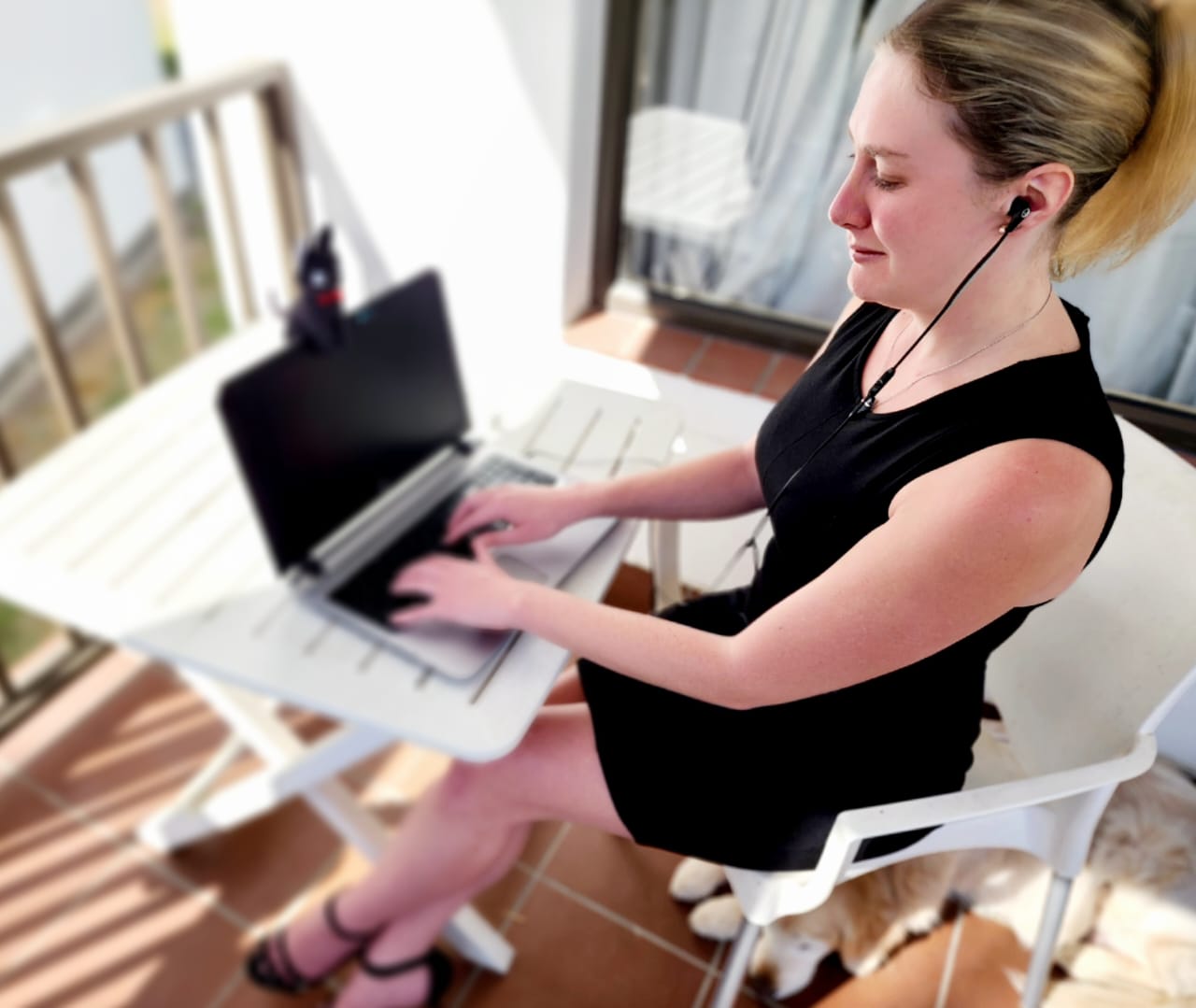If you think the gender pay gap is a tripping hazard, the disability pay gap will cause you to fall right into the ditch.
I have briefly touched on this topic in a previous article, but today we are going to take a closer look into disability and employment, or the lack thereof. This has unfortunately become rather relevant to me recently. I am very freshly unemployed and am now furiously job hunting again, and/or trying to build up a client base so as to start my own business. Since it is Worker’s Day in South Africa today, I thought that this would be a good time to post this.
In developed countries, 50% to 70% of disabled people of working age are unemployed. In developing countries, things are even worse, with 80% to 90% of disabled people lacking employment. In South Africa (my country) it is estimated that 90% of disabled people are unemployed, and this statistic approaches 100% in rural areas.
Why is this? Well, for starters, education for people with disabilities lags far behind, especially in developing countries. Countless disabled people never even make it through primary school, let alone all the way through a university degree. According to an article published by the Human Rights Watch in 2019, there is a lack of reliable enrolment data regarding the education of children with disabilities in South Africa, but it was estimated that 600,000 disabled children were not enrolled in school at the time. According to the same article, many disabled children who are in school are segregated, attending “special schools” in which they are not taught the same content as students in mainstream schools. When I was in high school, I remember being the only student in my class taking straight mathematics instead of maths literacy, and both straight maths and science are now no longer available as subject choices at all at my old school. This is a massive concern, as limiting subject choices makes it much less likely that students will end up with subjects that will allow them to qualify for university. Even if they do, they are limited in what they can study. Often, removing certain subject choices results from these schools’ extreme lack of funding from government. In addition, parents of disabled children interviewed by the Human Rights Watch expressed concerns that “special schools” do not teach disabled children the skills necessary to lead an independent life and to find employment.
In the cases in which disabled people attend university, getting all the way through a degree or postgraduate degree is also not easy for disabled people. This is the case worldwide, but I am going to write from a South African perspective and draw on my own experiences, and those of my friends and acquaintances. Most of them are blind, so please note that I am not covering each and every disabled person’s struggle here.
One’s university experiences as a blind person are often affected by what one chooses to study. I chose a degree that other blind people had studied before me at that university, so a precedent had been set and certain kinks had been ironed out. Still, there were issues. For example, we had what was called a braille office, where inaccessible material would be made accessible for us. This could include the scanning of books to make them available in formats that were accessible with a screen reader, actually printing some material in braille, and describing certain visual information in text. Very regularly, lecturers would forget to send the material to the braille office in time, because disabled students were just not prioritised. Once the material reached the braille office, it wasn’t immediately available either, as it had to still be converted. When this was the case, it caused us to receive our study material later than other students did, giving us less time to study before tests. It also caused a pile-up of work when we had assignments to complete, because we did not have the option of starting with certain assignments earlier and getting them done long before the deadline in order to start on others.
In my Political Science Honours year (as was the case in many Honours years) there was a compulsory module on some inaccessible computer program that involved processing statistics. I had to wait a whole extra year to get my Honours degree, because I struggled through that module and didn’t make it. I was eventually allowed to take a different module in its place the following year as an exception.
Even attitudes within the disability office itself were problematic. Some (please note: not all) of the staff would react irritably to our requests, as if we were being ungrateful and they were doing us a favour. It didn’t seem to matter that assisting us was actually what they were being paid for.
Two of my closest friends were the first blind students to study Computer Science at my university. When they spoke to the disability unit, they were at first discouraged from following that study route. They managed to study Computer Science after all, due to having some very accommodating lecturers and tutors within the Computer Science department itself who figured out ways to teach them. No thanks to the disability unit, but to open-minded individuals. Of course, once these two friends of mine eventually got their Masters degrees, the disability unit did take credit, as if the credit didn’t belong to the actual disabled people who got that far.
Another friend of mine wanted to study Social Work. The Social Work department had some of the worst reasons for objecting. Apparently they still did a lot of record keeping and other tasks in physical writing instead of on a computer, which would not be accessible to my friend. She stood her ground though, was eventually accepted to study Social Work, and came out at the top of her class.
Other issues that were experienced by disabled people in my university included being refused accommodations if they had invisible disabilities. Additionally, people with learning disabilities who were granted extra time to complete tests sometimes found that the extra time granted was not sufficient. They would lose marks because they could not finish in the allotted time.
A friend of mine who is a wheelchair user could not access a lecture hall in a specific building, because the class was on the second floor and the building did not have lifts. This was something that “could apparently not be changed”, because that specific building was a historical landmark. As if preserving a building in exactly the way that it was first built for the sake of history is more important than actually serving the students that currently have to use it…
Please note that I generally had a very positive experience at university, despite the above-mentioned issues experienced. My university is by far not the only university where these challenges exist. I just don’t care to candy-coat reality.
The above was a discussion of the shortcomings of the education system and educational institutions, but it is important to understand some of the challenges related to becoming employment ready. Now, let’s dive into the challenges that disabled people face when they are actually job hunting.
As someone who sat around without much income for a good two years at least (aside from what I could scrape together through part-time tutoring and acting as someone’s research assistant), I cannot begin to describe to you how disempowering being an adult who is still dependent on their parents or their partner can be. It absolutely destroys one’s self-esteem. Sitting staring at the same four walls every day of my life also had a very negative impact on my overall mental health, and subsequently, on my relationships. It was discouraging and demotivating to spend ages creating profiles on fifty different job sites, and then applying for job after job and either hearing nothing at all, or simply being rejected with some flimsy excuse if a reason was even given in the first place. Some disabled people eventually end up having to move back in with their parents, because they run out of money for rent or anything else.
When I was job hunting, my options were limited as it is. Many advertised jobs (although they had nothing to do with the ability to drive) required one to have a driver’s license. I also couldn’t work somewhere too far away if I couldn’t find a lift. Ubering would have been simply too expensive. Attending interviews was already expensive. I once arrived for what I believed would be an interview, but all of the job candidates first had to complete some typing test on an inaccessible computer program. So after spending all that money and sitting around for an hour, I was just sent home again.
The first job that I eventually found after that was in a very low paying position. I was on probation for longer than other new employees, because I didn’t work as fast for various reasons related to the accessibility of the computer programs we were using, as well as the fact that I couldn’t quickly scan a page for the information I was looking for. The quality of my work in comparison to that of other employees was disregarded. Adding to this, it was in a different town, so I used to get lifts from a colleague. When that colleague was off from work for some reason, I would be forced to put in leave or to Uber to work. For context, one day only of Ubering to work and back cost more than 10% of my salary. The job was one that could absolutely be done remotely, but I was told that it would not be allowed. The line that my managers liked to throw at me was “we don’t allow other employees to work from home, and we know that you don’t want special treatment because of your disability”. I did not want special treatment. I just wanted reasonable accommodation laws to be respected, but I said nothing, because I didn’t want to be seen as difficult by my employers and lose my job. Reasonable accommodation is based on the principle that employers should make adjustments to the workplace environment, or to elements surrounding how a job is performed, to put disabled employees on an equal footing to nondisabled employees in terms of employment conditions. This could include elements such as being flexible around working hours, or as was my requirement, being flexible in terms of rules regarding the physical location of where the job was going to be done.
The rule about working from the office wasn’t even relevant though, because once when there were taxi strikes, my colleagues living in affected areas were allowed to work from home. Eventually I had to resign, because the colleague with whom I would ride to work moved out of my town and would no longer be able to give me lifts. Why did I not also move closer to work? Because I would have been a disabled woman all on my own, far from my friends in an entirely unfamiliar (and in the case of where my job was located, not very safe) environment, and my salary wasn’t worth that. After that, it took me another seven months to find employment.
So why is it so difficult for qualified disabled people to find jobs? I would argue that the primary reason for this is because of assumptions. Employers assume that a disabled job candidate must be less competent than their nondisabled counterparts. Otherwise, they assume that the disabled person might turn out to be a liability and cost the company money. Employers are concerned that they would have to invest in making the workplace environment more accessible by installing lifts and ramps, or purchasing software that would make working on a computer accessible. Another concern might be that disabled people with specific health conditions would take too much time off work for doctor’s visits and the like. On most occasions, the disabled job candidates aren’t even asked what kinds of accommodations they would require. Employers are also unlikely to directly tell a disabled person that they are being overlooked because of their disability, for fear of legal repercussions.
When companies do employ people with disabilities, it is often to tick boxes on some employment equity form. This results in the disabled employees being shoved into menial, low paying jobs that are frequently poorly matched with their qualification and skill levels. These jobs are not high responsibility jobs, so even if the disabled employee turns out to not be competent, the company doesn’t stand to lose much.
Here’s the thing that most employers do not understand though: Reasonable accommodation laws do not require organisations to do anything that will cause undue hardship. In fact, they can be beneficial to everybody. An example that occurred naturally is in the case of adjustments made to working conditions that allowed many people to work from home during Covid lockdowns. Many employers are now sticking to this mode of work, or making use of a hybrid approach whereby employees are required to come into the office only a certain number of days per week or month. Research has also shown that this has even increased the output of employees, as this cuts out time spent commuting, just to name one benefit.
In addition, universal design (based on the principle that physical and electronic spaces should be designed in a way that make them accessible and usable to the widest range of people possible) is beneficial to more than just disabled people. I am not going to branch out into an in-depth discussion of universal design for the purposes of this article, but suffice it to say that research has shown that only a quarter of the people who benefit from accessibly designed environments and technology are disabled, and it generally positively effects an organisation’s bottom line.
Employing and accommodating people with disabilities holds other benefits. Research has shown that employees with disabilities tend to be highly reliable, taking fewer sick days or time off, and staying in jobs longer than other employees. This promotes lower staff turnover. Disabled employees have been shown to be equally productive to nondisabled employees, and they are also no more likely to sustain injuries at work than their nondisabled colleagues. Organisations that recruited disabled employees indicated that it was much more affordable than they initially thought it would be. Disabled people (because they have to work around barriers on a daily basis) tend to have very strong problem-solving skills and are innovative. Innovation is a highly prized skill in the workplace.
Finally, it has been shown that a diverse workforce outperforms a homogenous workforce 2:1. Diverse recruiting promotes teamwork, as the workforce will consist of people with diverse skills, ideas, and life experiences to draw from. Diversity also builds an organisation’s image, both from within, and in terms of perceptions about the company amongst customers.
On a quick sidenote before I conclude, it would be remiss of me not to mention that disabled people are frequently expected to offer their services for free, when it comes to acting as disability and/or accessibility consultants for organisations. Disabled people have highly specialised skills and knowledge that should not be undervalued, and anyone (regardless of their demographic group) should be paid for doing a job. Organisations should realise that making products and services accessible benefits them, and they are not doing disabled people a favour by investing in accessibility.
Progress has been slow, but things have recently been moving in the right direction. Remote work opportunities have drastically increased the pool of jobs that disabled people can apply for, and a focus on diversity and inclusion (DNI) culture within organisations has created a greater awareness of the benefits of employing disabled people. However, there is still a long way to go.
The “bottom line” is this: If you’re an employer, take the time to communicate with disabled job candidates about their skills and their needs before you write them off based on assumptions. You won’t be sorry. If you’re a disabled job seeker, hang in there, and remember that you have the right to be treated fairly without fearing to lose your potential or current job. You add value.


